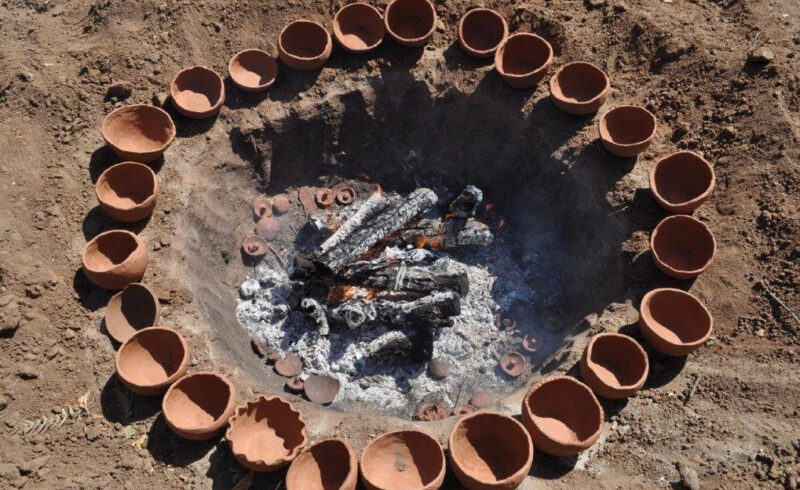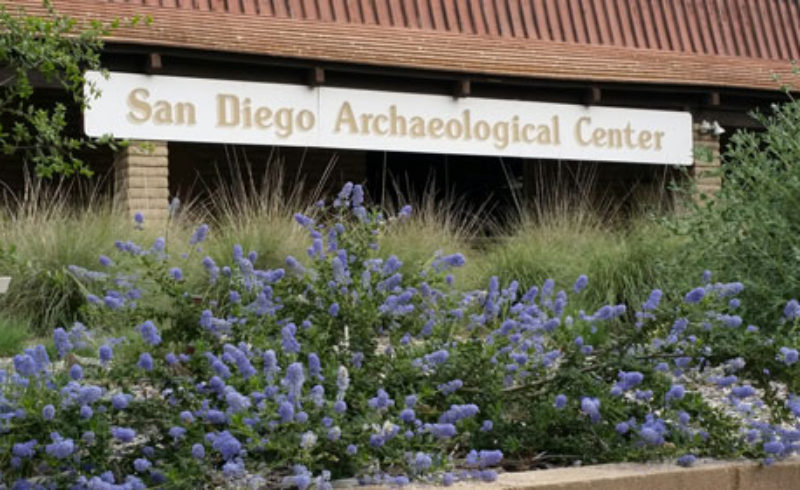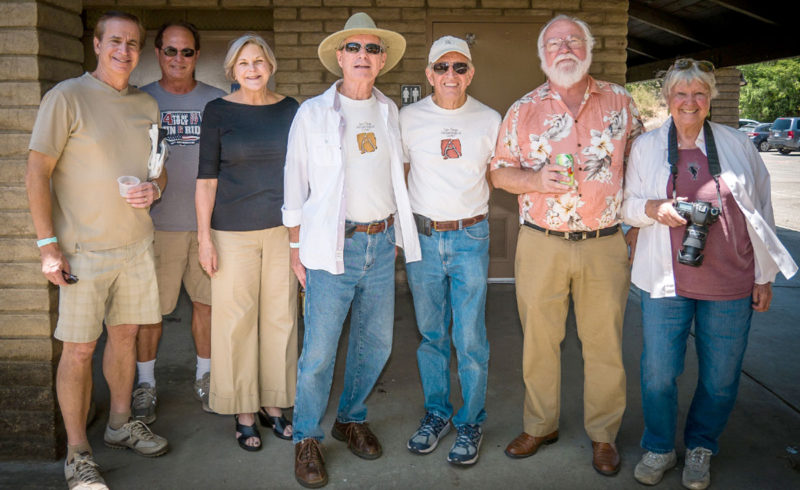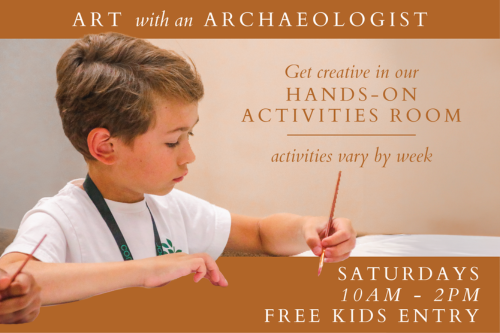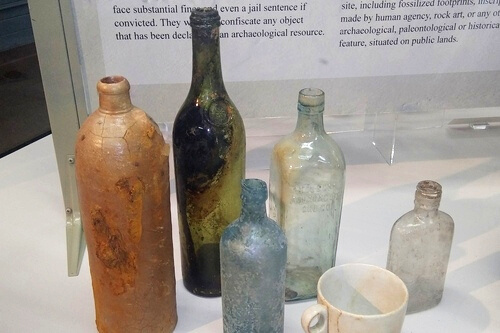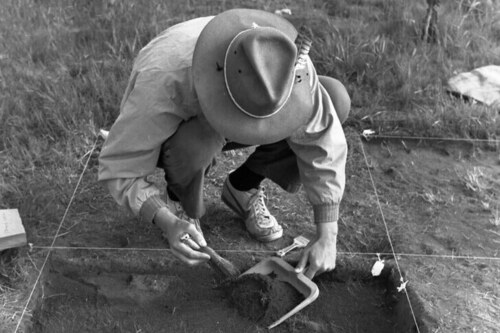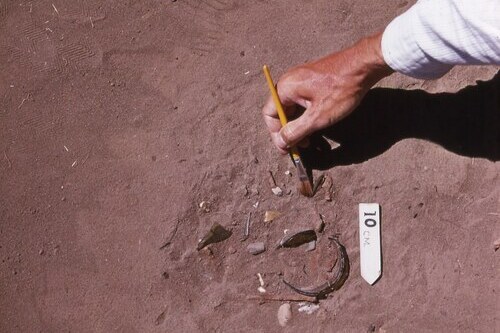Art with an Archaeologist
Free admission for kids on select Saturdays! Join us for family-friendly activities in our classroom, where you can create your own art with an archaeologist, become a junior archaeologist with our miniature excavation units, and curl up with a book…
It’s a Crime
Thieves have been robbing historical sites for thousands of years. Many people think it is okay to take artifacts and ecofacts if they find them in the wild, but stealing and looting objects from archaeological sites is a crime. What…
Dig Deeper: What Is Archaeology?
Dig Deeper is a monthly blog focusing on the basics of archaeology by taking a closer look at the exhibition Archaeology 101, which is currently featured at the Center. What is Archaeology? Archaeology is the study of human history, prehistory,…
Dig Deeper: What Tools Do Archaeologists Use?
Dig Deeper is a monthly blog focusing on the basics of archaeology by taking a closer look at the exhibition Archaeology 101, which is currently featured at the Center. Introduction After digging deeper into what archaeology is last month, you…
